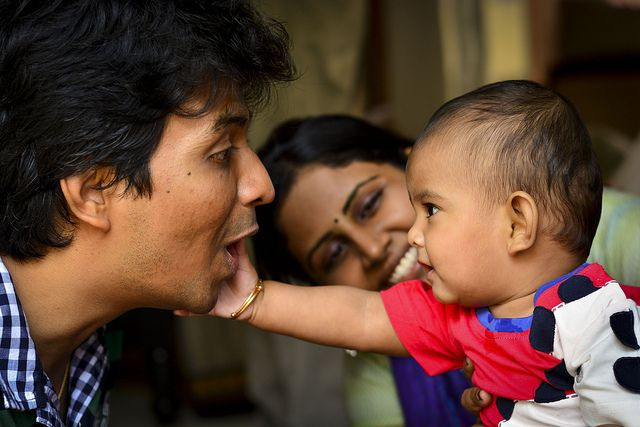Kids From Big Families More Likely To Suffer Poor Cognitive Function, Behavioral Problems

When it comes to having kids, less may be more. A recent study conducted by three economists found with every additional child born in a family, the other siblings are more likely to suffer poor cognitive abilities and behavioral problems, while overall experiencing worse outcomes later in life.
"Using a variety of approaches we have documented a significant trade-off between quantity and quality of children for NLSY mothers and their children," wrote the study authors. The economists, Chinhui Juhn, Yona Rubinstein, and C. Andrew Zuppann, hypothesized the quantity of children a family will impact the "quality" of each child, such as education, employment, and criminal record. They drew data from the National Longitudinal Survey of Youth and the Children and Young Adult Survey, which asked families questions between 1986 and 2012 about their children's math and reading abilities, behavioral issues, and home environments. The researchers also analyzed how older siblings performed before and after a younger sibling was born.
The findings revealed parental investment — represented by factors like how often families eat meals together, how often parents show kids affection, and how many books each child has — fell by 3 percent after a younger child was born; cognitive scores fell by 2.8 percent; and behavioral problems increased. However, these effects were dependent upon the older child's gender. For example, girls who gained younger siblings were more likely to see their reading and math scores suffer, while boys were more likely to have behavioral issues.
"Our fixed effect estimates indicate that the arrival of a younger sibling reduces measures of parental investment as well as cognitive and non-cognitive outcomes of older children by approximately one-tenth of a standard deviation," wrote the researchers.
Meanwhile, the overall amount of education received by each child also lowered. For each additional child born, the researchers found the average amount of formal training delivered to the kids in the family fell by -0.13 years. Older children whose parents had twins were schooled nearly half a year less than other families. These were not temporary side effects: They persisted through childhood and into adulthood, leading to lower education, lower earnings, more criminal behavior, and more teenage pregnancies.
"Test scores and parental investments are both worse over the longer horizon than in the short run. Only in behavioral problems do we find that the effects may dissipate over the longer run,” they found.
One external factor that did appear to have a big influence on these outcomes was the mother's intelligence and economic well-being. The mothers in the data set were asked to take the Armed Force Qualification Test (AFQT), which is a test the military uses to assess reading, reasoning, and other basic abilities. Mothers who did not score well saw a much larger drop in cognitive abilities when their second child arrived.
"High AFQT mothers of all races appear to face less of a trade-off than mothers with low AFQT scores," according to the study.
In other words, the differences in AFQT scores could be correlated with lifestyle differences. For example, the researchers theorize worse child care coverage, maternity policies, or flexibility in household labor supply could make the presence of another child detrimental to older siblings in the household.
A separate 2012 study found family size, not birth order, may also affect intelligence. Here, the researchers revealed children from larger families, regardless of birth order, were less intelligent than kids in smaller households. The study also suggested smarter parents may have fewer children.
Satoshi Kanazawa, the lead author of the study, poses an evolutionary theory in the published paper: "More intelligent people are more likely to do unnatural things or things for which they are not evolutionarily designed to do."
Despite these findings, coming from a big family doesn’t mean you’re destined for failure. Best example? Former President John F. Kennedy, who was the second of nine children.
Sources: Juhn C, Rubinstein Y, and Zuppann CA. The Quantity-Quality Trade-Off and the Formation of Cognitive and Non-Cognitive Skills. National Bureau of Economic Research. 2015.



























